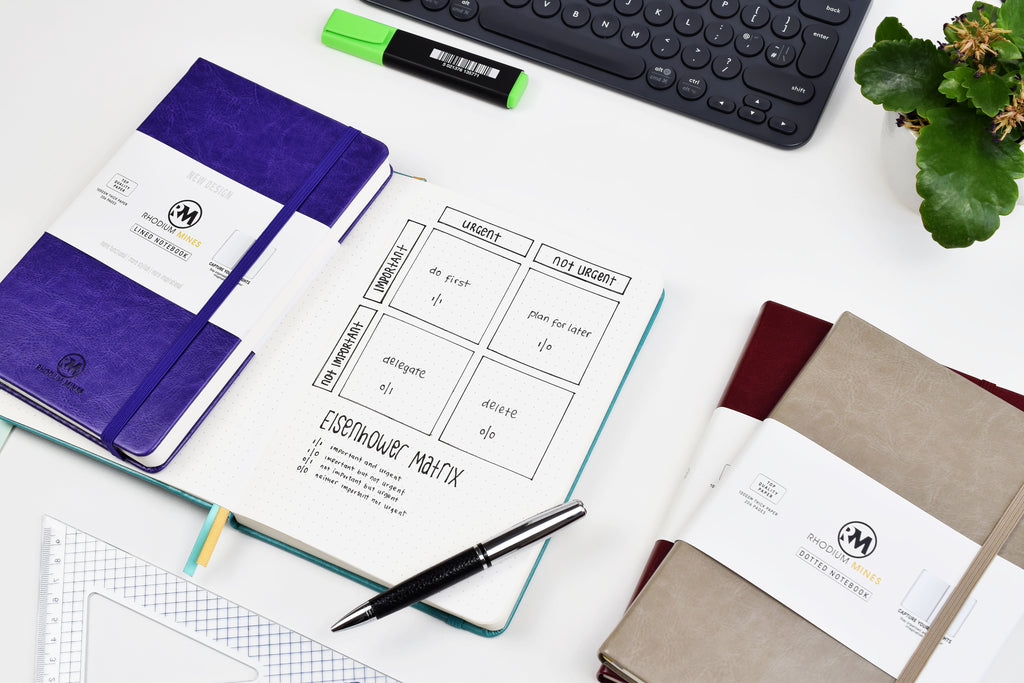If there’s one way to stay relevant in this fast-paced world and open the door to new opportunities; it’s by learning new skills.
Of course, we’ve all had to learn something new at one point or the other. Whether for personal growth, keeping up with new developments around us or just for the fun and experience of learning something new. Whatever the reason, learning a new skill has always been a part of our lives and sometimes a necessity to achieve our goals.

When you learn something new, you get a sense of pride and accomplishment, it improves your brain chemistry, you get closer to other goals, plus you now have a new skill! Yeah!
Unfortunately, despite having genuine desires to learn, many people give up when the going gets tough. Some others get so overwhelmed by the thoughts of the hard work required that they quit even before they start! So the question is, how do we learn something new?
I’m glad you asked. Let’s dig right in!
1. DETERMINE YOUR WHY AND COMMIT TO YOUR DECISION
Knowing why you want to learn a new skill is very important, as it can be the key to your success in learning that skill – in the end. It will help you determine your approach to learning, the level of expertise you need and mostly, it can provide the motivation that keeps you going when things get tough. Interestingly, knowing your WHY can even help you determine whether you should be learning that skill in the first place!
Once you’ve decided to learn something new, it’s essential for you to commit to your decision and hold yourself accountable every step of the way. Do not make promises you can’t keep – not even to yourself!
So the next time you want to learn something new, make the experience more meaningful by first determining why that skill is important to you. Then go ahead and commit to a deliberate process by taking action, and letting your WHY guide you all the way.

2. WRITE DOWN CLEAR GOALS AND BACK THEM UP WITH A PLAN
Have you ever heard the saying: “a goal not written down is just a wish?” Writing down your goal is a demonstration of your commitment to it and the first step to taking action. Doing this will help you gain clarity on what exactly you’re trying to achieve.
I cannot stress enough the importance of making it a SMART one. What level of competence are you looking to attain? What are the fundamental subskills? How do you measure your progress? Is your goal even achievable? Are there milestones? By when do you want to achieve them?
Once you’ve written down your goals, then you need to determine how you will achieve them. In other words, you need an action plan. How do you schedule your practice sessions? Where will they take place? What learning resources will you need?
For example, if you’re learning how to become a better speaker; part of your action plan may include practising from 8 to 8:45 pm, Monday to Friday in your living room in front of a camera and watching the clips afterwards to assess your performance. The key here is being clear about what your goals are and how you’re going to achieve them.
3. REMOVE BARRIERS AS MUCH AS YOU CAN
If the process of learning a new skill is already tricky, the last thing we want to do is make it more difficult. Every time you want to do something, there are always forces or factors that will attempt to stop or frustrate your efforts. It could be distance, distractions, access to learning resources, or even relationships.
Take access to learning resources for example. You’re learning how to play the guitar, you get home on a winter’s night tired, but you’ve still got a little in the tank to practice your guitar. Fortunately, it’s right in front of you on its stand. All you have to do is stretch your hand, pick it up and start playing! Easy right?
Let’s rewind and consider this other scenario. On a winter’s night, you get home tired, but you’ve still got a little in the tank to practice your guitar. But it’s locked in its case, the case is in the shed outside, the key to the shed is upstairs and when you finish practising you have to return the guitar to the shed – in the cold! After thinking about these barriers, with a heavy sigh, you say to yourself: “okay, I’ll just practice tomorrow!”
That was my story for a very long time before learning to design my environment for optimum productivity. The point is, removing barriers to learning can make a tremendous difference to the process of acquiring a new skill. In his book ‘The first 20 hours’, Josh Kaufmann talked about the importance of making changes to our environment, to make learning as comfortable as possible.

4. GET A COACH
This is a simple one. If you want to learn how to do something, it’s only sensible to learn from someone who’s already doing it. This does not necessarily mean paying for an expensive instructor. Although, getting a coach will be my recommendation if you can afford one.
The alternative might be to reach out to someone in your circle of friends and family, who already has at least the level of skill you’re aiming for. If they agree to help you out, this should be more cost-effective, and if they’re not asking for money, find a way to compensate them. Don’t be a Scrooge!
When you learn from a pro, you’re not only learning a skill; you’re also gaining the experience that has taken them probably years to gather, within a shorter space of time. This is a sure way to accelerate your learning.
5. FOCUS ON KEY SUB-SKILLS
If for any reason you can’t get someone to teach you this new skill, that’s okay. It just means you’ll have to do the research yourself. Fortunately, there’s no better time to self-teach a new skill than now. There are many quality contents out there – no matter what you’re trying to learn.
What you need to do is deconstruct the skill and break it down into sub-skills. Interestingly, only a fraction of these sub-skills will be significant to you at this stage. So consider applying the Pareto Principle or the 80/20 Rule.
A little bit of learning. The Pareto Principle states that in many events, roughly 80% of the outcome comes from 20% of the input.
So, the task is to identify these fundamental sub-skills and focus on them. For example, if you want to learn how to sing, some of the critical sub-skills will include breathing and air support, voice projection and phonation. Focusing on each one at a time will ensure you don’t get overwhelmed – and that’s good!
6. DON'T GET INTIMIDATED BY THE PROS
When learning a new skill, you’ll always see people who are better than you or those who have attained mastery. This can be either inspiring or intimidating depending on your mindset. For example, if you see a professional public speaker delivering a speech with confidence and eloquence; you can say to yourself if they can do it, so can I.
Someone else can look at them and say: I’ve been practising for weeks; how come I can’t do that? I don’t think I can ever be as good as them. I better quit now and stop wasting my time. Really? You need to remember that these are finished articles with years of experience and deliberate practice under their belt. There’s a theory that it takes roughly ten thousand hours to master a skill.
So, it’s only natural to feel like you’re not making much progress, especially when you come across those at a more advanced stage of learning. However, you have to remind yourself that learning takes time and we all learn at different rates.
7. PRACTICE DELIBERATELY AND KEEP PRACTICING
You’ve done your research, and you’ve identified the essential sub-skills to learn. The next thing is to put in the work by practising using the right techniques. Yes, the right techniques. You don’t want to put in so much time and effort into learning, only to realise that you have to unlearn the bad habits you’ve picked up along the way.
Practice is critical to learning or achieving anything. You learn by doing. Nobody learns how to swim just by reading books about swimming. You learn by jumping in the water!
If I can tell you a secret to attaining confidence in any skill, it is a lot of practice. You do it over and over again until it becomes second nature. Would you make mistakes? Yes. Will it be difficult? Yes. Should you give up as a result? Of course not! You learn from your mistakes; you pick yourself up and keep going. That is the secret to mastering any skill.
8. START NOW
For you to be good at anything, you have to START DOING it. Without taking action, you can’t get results, so if you don’t start practising, you can’t develop your skill. Don’t wait for ‘the perfect time’ to begin the learning process; it’s highly likely never going to come. You have to make the best use of your current circumstance and if you ever feel demotivated at any time, go to tip number one and get back to work!
From personal experience, I’ve found out that taking the first step is one of the biggest hurdles for many people when it comes to chasing their goals. This can be down to different reasons – lack of self-confidence, fear of the unknown, demotivation, limited knowledge, procrastination, lack of resourcefulness and so on. I’ll have to dedicate a future blog post to ‘the importance of STARTING and how to get the motivation to do so’.
CONCLUSION
So, I want to ask you: how do you learn a new skill? What are your techniques and strategies? I look forward to reading them in the comment section below. Also, don’t forget to sign up to our newsletter, so you’ll be the first to know when we publish new contents.
This article was originally published on transformingstep.com, written by our own Segun Ojediran (MSc).
Images by: David Schultz, Alexis Brown, Toa Heftiba and Rhodium Mines Media.

